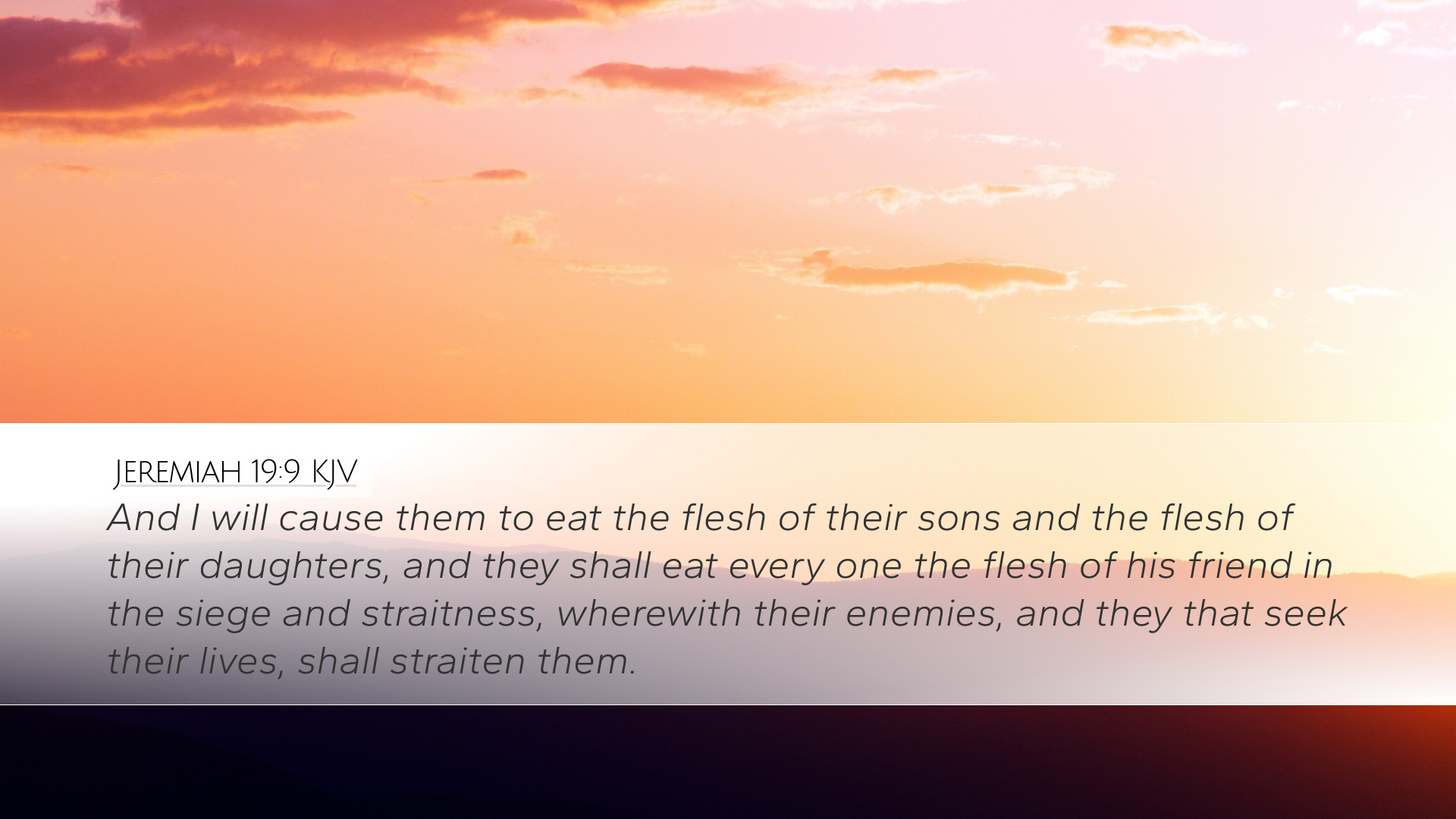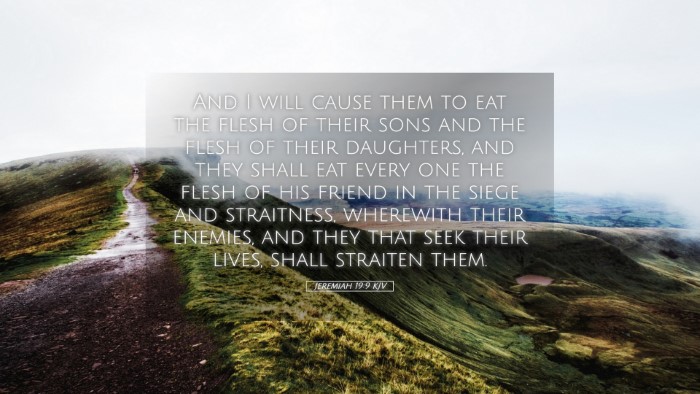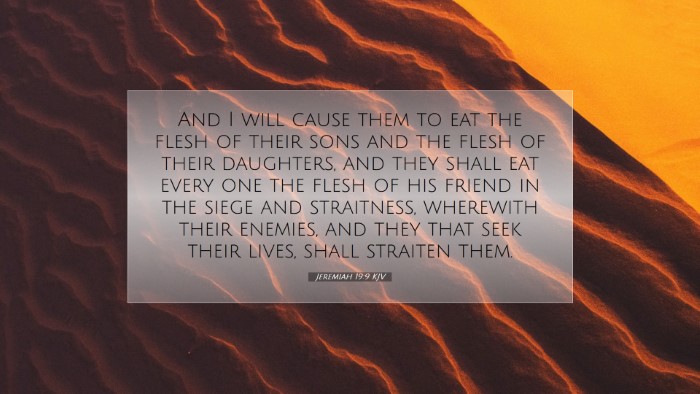Bible Commentary on Jeremiah 19:9
Jeremiah 19:9 reads: "And I will cause them to eat the flesh of their sons and the flesh of their daughters; and they shall eat every one the flesh of his friend in the siege and straitness, wherewith their enemies, and they that seek their lives, shall straiten them."
Contextual Overview
This verse appears in a section of Jeremiah where God instructs the prophet to deliver a message concerning the coming judgment upon Judah. It reflects the severe consequences of sin and apostasy, addressing the spiritual and moral decay of the people. This prophecy is significant in understanding the depth of despair that comes from turning away from God.
Exegesis and Insights
Commentators provide various insights into the horrific nature of this prophecy. Matthew Henry notes:
"In this dreadful prophecy, God reveals the utter desolation that will come upon the people because of their idolatry and ungodliness."
- Henry emphasizes that the siege described refers to a time of great deprivation when basic sustenance becomes scarce.
- The imagery of cannibalism serves to highlight the extreme measure to which desperate people might resort, illustrating a total breakdown of societal norms.
Albert Barnes adds further context by stating:
"The judgment here described is a direct result of the people's rebellion against God, showcasing the severity of divine retribution."
- Barnes elaborates that this was not merely a physical famine but also indicated a spiritual famine, reflecting the state of the heart of the people—far removed from reliance on God's provision.
- He argues that such dire predictions serve as warnings against idolatry, portraying the dire consequences of forsaking God and the covenant.
Adam Clarke provides a pastoral perspective, noting:
"This prophecy illustrates the extent of divine judgment that awaits those who refuse to heed the voice of God, and the moral corruption that comes as a result."
- Clarke explains that the terms used in the prophecy reflect not only physical hunger but also a loss of compassion among the people, leading to unimaginable acts during times of crisis.
- He stresses the importance of understanding historical context, as the Babylonian siege was a terrifying reality for the people of Judah.
Theological Implications
This verse compels us to reflect on the theological implications of divine judgment. It serves as a stark reminder of how far humanity can fall when divine standards are rejected. Some critical points include:
- Divine Judgment: The severity of God's judgment is evident in the graphic imagery, which illustrates the connection between sin and consequence.
- Human Desperation: The vivid descriptions of desperation remind readers of the depths to which humanity can sink when estranged from God.
- Sovereignty of God: This passage affirms that God is sovereign over nations and individuals alike, wielding judgment as He sees fit.
Applications for the Believer
Pastors and theologians can draw several applications from this verse:
- Warning Against Apostasy: This text serves as a strong warning against turning away from God, urging believers to remain steadfast in their faith.
- The Importance of God’s Provision: It reminds us of our dependency on God, who alone provides for our spiritual and material needs.
- Compassion in Crisis: As believers, we are called to maintain compassion and care for one another, even in times of extreme difficulty.
Conclusion
Jeremiah 19:9 is a potent warning about the consequences of forsaking God. Through the insights of revered commentators like Matthew Henry, Albert Barnes, and Adam Clarke, we gain a deeper understanding of the text's implications. As we contemplate this verse, may it lead us to a renewed commitment to uphold God's standards and seek His provision in all areas of our lives.


